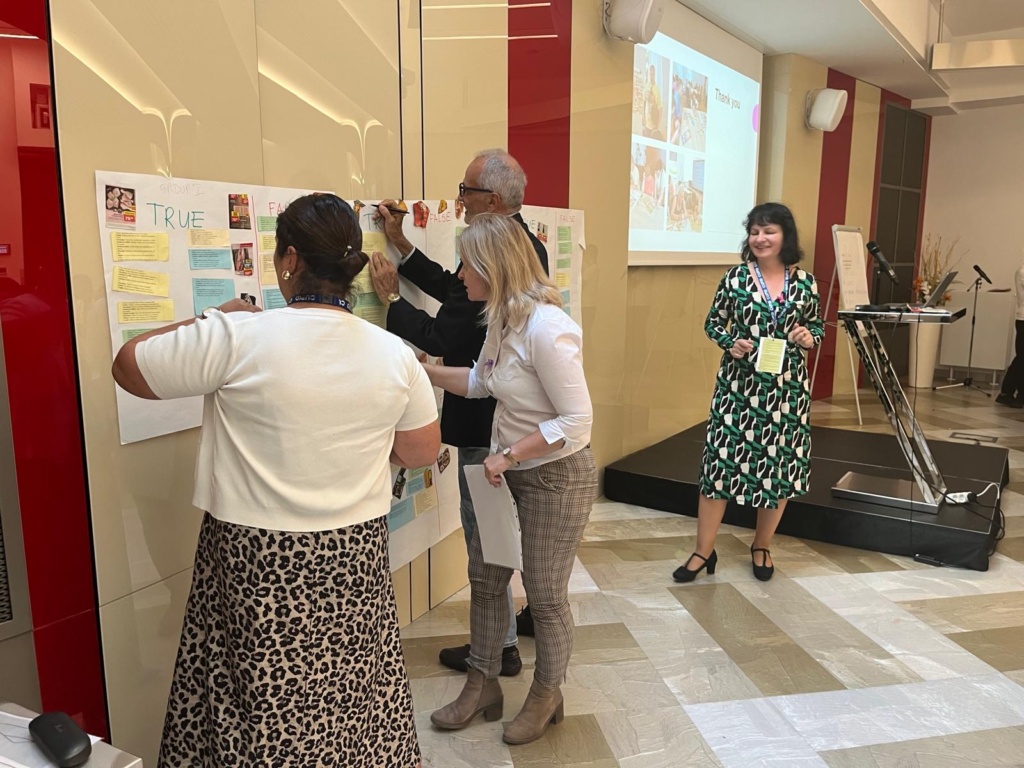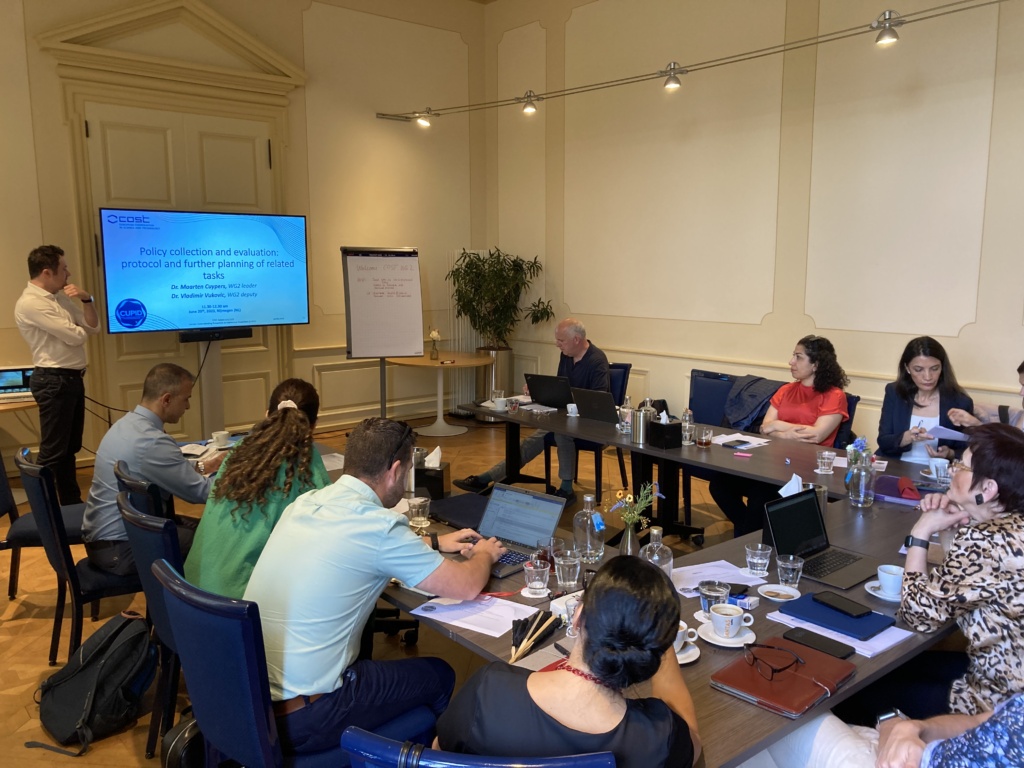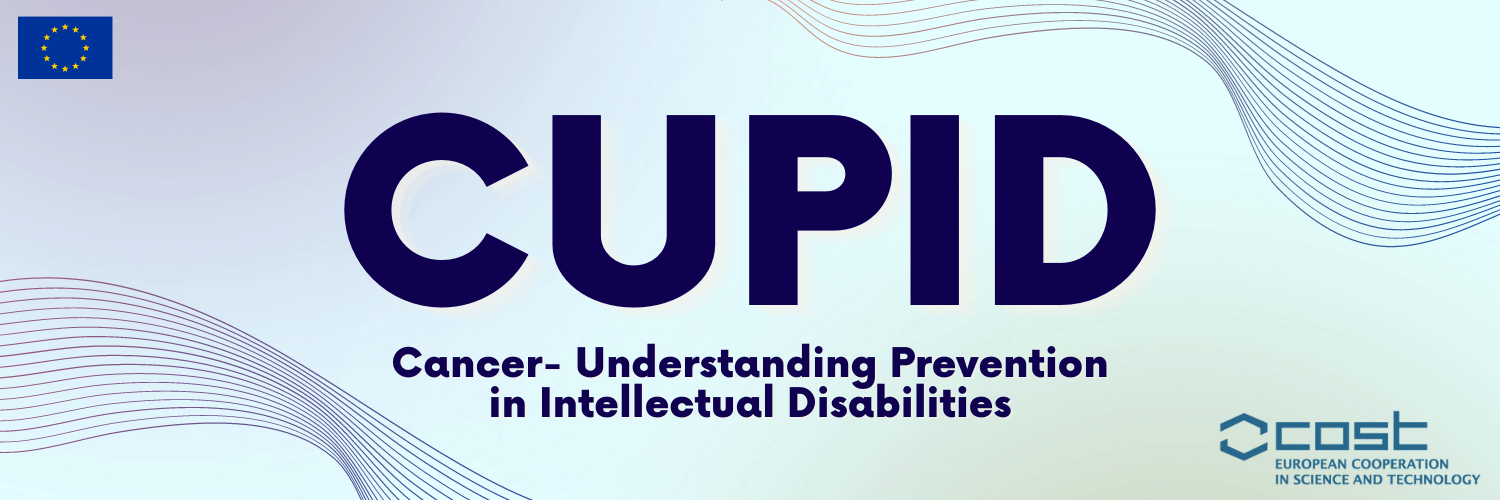What is CUPID aiming to establish?
There is poor understanding of cancer prevention among people with intellectual disabilities. CUPID will establish a research agenda and knowledge base to improve this in the European Union and beyond. Among the European intellectual disabilities population, many cancer diagnoses are symptomatic presentations following on from behavioural distress or physical changes. Cancer deaths among this population occur up to 20 years earlier than the general population. Factors influencing unequal health status and premature death amongst people with intellectual disabilities warrant further investigation. Article 25 of the United Nations Convention on the Rights of People with Disabilities acknowledges their right to healthcare. The Council of Europe Disability Strategy 2017-2023 recognises health systems failure to engage with and include people with disabilities.


Reasons the project was developed
Many external and internal factors influence healthcare engagement among this population resulting in long- term health consequences. External factors include diagnostic overshadowing, paternalism and cancer screening delays during the COVID-19 pandemic. For the person challenges with communication, cognitive ability and decision-making capacity influence healthcare engagement. It is timely to develop collaborative links with the EU research and service provider communities to reach consensus on addressing these challenges. CUPID establishs active working partnerships with academics, researchers, non-governmental organisations, carers, people with intellectual disabilities and policy makers. CUPID will establish a research agenda and exchange information regarding cancer prevention in the intellectual disability population. Short term scientific exchanges, training schools, conferences and seminars using a hybrid approach will explore highlighted issues. Other network funding streams will not support this kind of activity.
Objectives
Research Coordination
● Creation of a sustainable network of researchers involved in intellectual disabilities, cancer prevention, epidemiology, health sciences, social sciences, education and other adjacent fields, engaged in knowledge exchange.
● Establish the ‘state of the art’ in terms of national and cross-national co-produced knowledge base, and explore how this could be of benefit in the lives of people with intellectual disabilities.
● Development of a research agenda exploring where the current challenges lie and what targeted research projects and initiatives would be of most benefit to tackle them while being responsive to the unique needs of people with intellectual disabilities.
● Promote new collaborative funding applications from network members including national and EU funding opportunities in the area of cancer prevention strategies.
Capacity Building
● The appointment of leads in the network who will be responsible for engaging with
researchers and other key stakeholders within and outside the network to develop discussion, explore current thinking and progress thinking in the area both nationally and internationally
● Creation of a database of experts to assist in the planning and conduct of primary research in cancer prevention in the intellectual disabilities populations
● Involve Early Stage Researchers, young researchers and researchers from less research intensive countries in the CUPID network, thus improving their career prospects by supporting researcher mobility and expanding professional networks.
● Develop and establish both short (Continuous Professional Development) and long term (MSc and PhD) programmes in the emerging areas of interest developed by the activities of the CUPID network
● Foster collaboration between a diverse network of researchers, including co-researchers from the intellectual disabilities community,that will build capacity to develop joint research initiatives
Deliverables
Deliverables WG1:
• Develop a protocol on how to evaluate the inclusiveness of cancer prevention programmes including equitable access to screening based on a current literature review together with feedback from clinicians, people with intellectual disabilities, family members and other relevant stakeholders using online focus groups and questionnaires. The key foci will be to establish how people with intellectual disabilities and their relatives perceive cancer prevention and access to screening programmes; and how involved are people with intellectual disabilities in the decision making process to participate in such programmes.
• Organise a training school about cancer prevention programmes and factors impacting on equality of access for and with people with intellectual disabilities.
• Organise STSM’s to facilitate training and knowledge exchange from experts across Europe.
• Liaise with the WG4 to ensure reports and working papers are published from working group meetings and information is disseminated thought the Action’s website; together with the other WG’s, overseen by the MC, and participate in organising the Action conferences.
Deliverables WG2:
• Develop a knowledge base to identify the minimum EU policy standard for cancer prevention for people with intellectual disabilities across the pan-European area.
• Organise a training school about organisational context and implementation of equitable cancer prevention strategies including access to screening programmes.
• Organise STSM’s to facilitate training and knowledge exchange from experts across Europe.
• Liaise with the WG4 to ensure reports are published from workgroup meetings and information is disseminated thought the Action’s accessible website and social media accounts; together with the other WG’s, overseen by the MC, participate in organising the Action conference.
Deliverables WG3:
• To develop a research agenda to develop EU wide cancer prevention guidelines for people with intellectual disabilities.
• Organisation of a Training School about health system goals for targeted cancer prevention and screening programmes for people with intellectual disabilities
• Liaise with the WG4 to ensure reports are published from workgroup meetings and information is disseminated thought the Action’s website and social media accounts; together with the other WG’s, overseen by the MC, participate in organising the Action conference.
Deliverables WG4:
• Dissemination plan for knowledge base developed during the CUPID Action to all relevant stakeholders including easy read versions for people with intellectual disabilities including annual, midterm and final reports
• Development and launch of an accessible CUPID website and social media.
• Annual online newsletters describing the progress of the Action produced
• Open access webinars developed and delivered at strategic times during the Action
• A final conference will be organised to ensure all knowledge developed during the CUPID Action is disseminated to all relevant stakeholders, policymakers and other interested stakeholders. Additionally future prospects of the knowledge developed during the CUPID action will be discussed.
